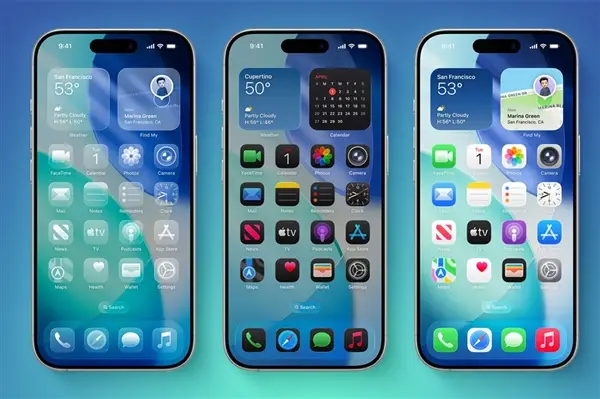Apple’s newly announced Mini Apps Partner Program marks a strategic recalibration of how the company manages small, web-based experiences hosted inside native iOS apps. By offering a reduced commission rate of 15% on in-app purchases made through mini apps, Apple is signaling a willingness to adapt to evolving app distribution models while maintaining its role as the gatekeeper of App Store commerce.
What Apple calls a “mini app” is a self-contained experience built with web technologies such as HTML5 and JavaScript, distributed inside a larger native application. These embedded experiences have existed on the App Store for nearly a decade and are explicitly referenced in Apple’s 2017 App Review Guidelines under guideline 4.7. That rule gives developers permission to run mini apps, mini games, streaming games, chatbots, plug-ins, and game emulators that provide software not included in the main app’s binary, while also outlining expectations for handling sensitive data and filtering objectionable material.
The new Mini Apps Partner Program does not loosen those expectations; rather, it layers additional technical and policy requirements on top of the existing App Store rules. To qualify, the host app — the native iOS or iPadOS application that embeds the mini apps — must be available on the App Store and compliant with the Apple Developer Program License Agreement and App Review Guidelines. Beyond that baseline, Apple requires participation in specific platform features, notably the Advanced Commerce API and the Declared Age Rating API, mandates the use of Apple’s in-app purchase (IAP) system for mini app transactions, and obligates hosts to send Apple information about a user’s in-app purchase when refunds are requested.

Apple’s framing of the program emphasizes opportunity for developers: the reduced commission is intended as an incentive to grow mini apps and games hosted inside larger apps. By lowering the fee from the standard rate, Apple makes it easier for host platforms to re-invest savings into content, developer outreach, or improved user experiences. At the same time, the program nudges developers toward Apple’s own commerce and trust-and-safety tooling — essentially tying the economic benefit to broader platform control and oversight.
This approach responds to multiple pressures and trends. On the one hand, mini apps are a familiar feature of many popular mobile apps: messengers like LINE and WeChat have long hosted mini app ecosystems with games and services accessible without leaving the host app. More recently, AI platforms have introduced similar in-chat app experiences. ChatGPT, for example, has launched apps that run inside its chatbot, connecting users to services like Booking.com, Expedia, Spotify, Figma, Coursera, Zillow, and Canva. Observers have speculated that if user engagement and transactions shifted toward embedded app environments — particularly ones controlled by AI platforms — Apple’s App Store commission model could face disruption.
The Mini Apps Partner Program appears to be a defensive and proactive response. By offering a favorable commission rate contingent on using Apple’s IAP and platform APIs, Apple seeks to keep commerce tied to the App Store even as the locus of interaction diversifies. The 15% commission is notably aligned with a reported arrangement between Apple and Tencent for mini apps in WeChat, though Bloombergreported that Tencent’s deal might have been bespoke. With a formal program open to developers, Apple signals that similar terms are now available more broadly — provided host apps meet the technical and policy criteria.
For developers and platforms considering whether to participate, the trade-offs are clear. The upside is economic: a lower commission can materially affect margins for digital goods and subscription-based services sold through mini apps. For host platforms that aggregate many mini apps, even modest fee reductions can translate into significant funds for developer incentives, marketing, or platform improvements. The program’s requirement to use Apple’s commerce system also simplifies payment handling and dispute resolution under a unified framework.
On the downside, adherence to the program’s technical and policy demands adds complexity. Supporting the Advanced Commerce API and Declared Age Rating API implies technical integration work and ongoing compliance obligations. Using Apple’s IAP for all qualifying digital goods means surrendering certain freedoms around payment processing and pricing. The requirement to send Apple purchase information during refund requests raises potential privacy and operational considerations that hosts must manage carefully.
Regulatory context also matters. Apple’s App Store policies and commissions have been the subject of intense scrutiny by regulators and courts worldwide. By creating a program that both grants a discount and preserves Apple’s commission on embedded commerce, the company may strengthen its legal position that it offers reasonable options for commerce within its ecosystem while continuing to assert the value of its platform services.
For users, the program could improve discoverability and trust for in-app mini apps. Apple’s insistence on declared age ratings and use of its trust-and-safety tools suggests a level of content governance and consumer protection similar to that required of standalone native apps. That governance could be especially important as mini apps proliferate inside social, messaging, and AI-driven platforms where content and commerce can be highly fragmented.
Operationally, developers who wish to join must first request participation, provide details about their host app and mini apps, and agree to the program’s terms and conditions. When ready, they submit their host app and embedded experiences for Apple’s review — which already requires a manifest that details the software and metadata included in the app and the links to the mini apps it offers. Apple’s review process and the program’s eligibility checks will likely determine how widely the reduced commission is adopted and which categories of apps are able to benefit.
Looking ahead, Apple’s Mini Apps Partner Program is a compromise between openness and control. It acknowledges the reality that app-like experiences can live inside other apps and that platforms outside the App Store ecosystem — including AI chat platforms — could capture a share of app engagement and transactions. By crafting a pathway that offers economic incentives for compliance with Apple’s commerce and safety measures, the company aims to keep those experiences tethered to its ecosystem.
Whether that tethering will satisfy developers and regulators remains to be seen. Some developers will welcome the lower rate and the potential to scale mini app businesses under Apple’s umbrella. Others may balk at the integration costs and the continued reliance on Apple’s payment infrastructure. For now, the Mini Apps Partner Program represents Apple’s latest effort to adapt a long-standing platform model to new forms of app distribution while preserving its central role in mobile commerce.



















暂无评论内容